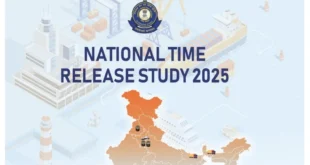The Aadhaar Bill, allowing private bodies to use Aadhaar as a means to authenticate identity, poses huge dangers
On Friday, the Lok Sabha, without any attendant discussion, passed the Aadhaar and Other Laws (Amendment) Bill, 2018. On any reasonable reading it ought to be plainly apparent that the Bill flagrantly flouts both the Constitution and the Supreme Court’s judgment which gave the Aadhaar programme a conditional imprimatur. It is therefore entirely likely that the government is banking on a sense of political fatigue having set in over the project, and perhaps it believes it has made the programme so ubiquitous that a few additional legislative tweaks are unlikely to shock and jolt the dissenters. But the present move is so brazen that we will be failing in our collective duties were we to allow the amendments to be carried out without any debate. For, if enacted, the law will once again allow private corporations, including banks and telecom operators, to use Aadhaar as a means to authenticate identity. Astonishingly, this change has been proposed despite the government’s abject failure to enact comprehensive legislation protecting our data and our privacy. Therefore, unless the Rajya Sabha places a constraint on the government’s impudence, the consequences will prove devastating.
Between September and now There is no doubt the Supreme Court’s judgment, delivered last September, enjoined
Parliament to make certain specific legislative changes. To that end, some of the court’s concerns are addressed by the Bill, such as the inclusion of a clause intended at ensuring that children are not denied benefits on account of a failure to possess Aadhaar. But the essential object of the law is to countermine those portions of the judgment that the regime deems inconvenient. So inconvenient that the Bill was introduced, as the lawyer Vrinda Bhandari has argued in The Wire , by altogether overlooking the state’s own “pre-legislative consultative policy”. This policy places an onus on the ministry introducing a law to publish the draft of any proposed legislation, together with, among other things, the objectives behind the law and an estimated assessment of the impact that such legislation may have on fundamental rights, and to thereafter invite comments from the public.
Yet, here, the Bill, which makes amendments not only to the Aadhaar (Targeted Delivery of Financial and Other Subsidies, Benefits and Services) Act, 2016, but also to the Indian Telegraph Act, 1885, and the Prevention of Money Laundering Act, 2002 (PMLA), was introduced without any prior consultation, leading to a credible belief that the proposed changes are an act of subterfuge. Originally, Section 57 of the Aadhaar Act allowed both the state and private entities to use the programme to establish an individual’s identity pursuant to a law or a contract. It was on this basis that various notifications were issued allowing corporations of different kinds, including telecom operators, e-commerce firms and banks, to use Aadhaar. But when the Supreme Court ruled on the validity of the legislation, although it upheld vast portions of the law through a 4:1 majority, it unanimously struck down Section 57 insofar as it applied to private entities.
Therefore, if the government fails to notify any new form of identification, a person’s identity will necessarily have to be authenticated through Aadhaar or through her passport. Given that only a peripheral portion of India’s population possess passports, Aadhaar is effectively made compulsory. Allowing private corporations to access and commercially exploit the Aadhaar architecture, as we have already seen, comes with disastrous consequences — the evidence of reports of fraud emanating out of seeding Aadhaar with different services is ever-growing. Hence, the amendments not only fly in the face of the Supreme Court’s verdict but are also wholly remiss in attending to the dangers both of slapdash data protection and of corruption and scamming. This move, to restore the use of Aadhaar by telecom companies and banks, however, is not the Bill’s only problem. There is a hatful of other concerns, including the re-introduction of a marginally refurbished Section 33(2). In its original form, the clause had allowed an officer of the rank of Joint Secretary to the Government of India to direct disclosure of Aadhaar information in the “interest of national security”.
The Supreme Court declared the clause unconstitutional and ruled that while disclosure in the interest of national security may be important, such disclosure should spring out of a request of a “higher ranking officer”. What is more, in order to avoid any misuse of the provision, requests of this kind, the court held, ought to require separate scrutiny, and, therefore, “a Judicial Officer (preferably a sitting High Court judge) should also be associated with” the process. However, the Bill, merely seeks to substitute the words “Joint Secretary” with “Secretary” in Section 33(2), completely disregarding the Supreme Court’s order demanding inquiry by a judge.
Ultimately, the Bill seeks to pave the path for Aadhaar to permeate through every conceivable sphere of human activity, transferring all authority over our bodies, in the process, from the citizen to the state, and, in many cases, from the citizen to private corporations. The Rajya Sabha, therefore, should resist any developing sense of ennui around the programme, and reject this Bill, for the utter contempt of democracy that it represents.
Suhrith Parthasarathy is an advocate practising at the Madras High Court
Source : https://www.thehindu.com/todays-paper/tp-opinion/a-renewed-attack-on-privacy/article25945297.ece
 Chinmaya IAS Academy – Current Affairs Chinmaya IAS Academy – Current Affairs
Chinmaya IAS Academy – Current Affairs Chinmaya IAS Academy – Current Affairs


